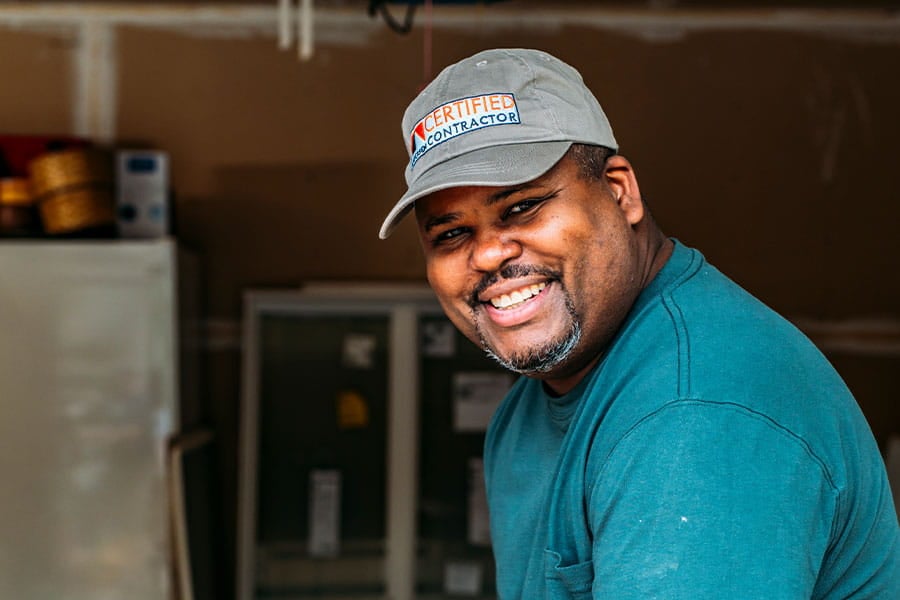So, you’re ready to get serious about replacing your windows. Here’s how to get started searching out the best contractor for the job and assessing their qualifications.

Window replacement is a specialty within the general contracting field. To find the best professional for your job — someone who’s experienced and who you’ll feel comfortable having in your home — we have some tips to aid your search and vetting process.
You could with start Google, but you might find a quality window contractor quicker if you’re more purposeful with where you begin. Here are some ideas to get you started finding a contractor who specializes in windows:
Your personal network
If you have friends, family, or neighbors who have recently completed a window replacement project that you admire, ask who they used. A recommendation from a neighbor can be especially helpful because their home was likely built around the same time as yours. It can be nice to work with a contractor who’s familiar with the issues that can arise within homes of your era.
The window manufacturer
Look for an Andersen Certified Contractor in your area. These contractors are vetted by us, receive training on our products and installation best practices, and must meet certain requirements that help protect the homeowner — such as carrying insurance. In addition, their installations are backed by a two-year limited warranty.

You can find a window specialist in your area through the Andersen Certified Contractor program. Contractors participating in the program have received training about our products and installation best practices, and their work is backed by a two-year limited warranty.
Your local lumberyard or building supplier
Lumberyards and building suppliers serve contractors daily. The people who work at these businesses will have a pretty good idea about which contractors regularly install windows, the products they tend to order, and even how they conduct themselves — their interpersonal skills and more. As a bonus, if you go into the lumberyard or supplier, you might even have a chance to check out the windows on display.
Once you have a few names in hand, it pays to spend a little time doing preliminary research before moving forward with meetings. Here are a few ways to begin doing this:
What do customer reviews and ratings say?
There are various places you could go to read customer reviews of a contractor’s work. A good place to start is with the Better Business Bureau (BBB), which is an organization that seeks to “establish marketplace trust.” Customers can contact the BBB when they have complaints about a business. They can also leave reviews, and report scams. The BBB assigns grades to businesses based on various inputs. The grades are easy to understand, the website is free to use, and you can search by location. In addition to BBB ratings and reviews, you could check out sites like Google or Angi’s (formerly Angie’s List).
What can you learn from their online presence?
Checking out a contractor’s website or social media presence can help you get a sense for the quality of their work, the types of projects they typically take on, and even their standing within the industry and community. Look for the following:
Keep in mind that contractors spend most of their days out in the field. This means that not every contractor will have prioritized or invested in developing a robust online presence, particularly if their business is smaller. So, while it’s nice to find a contractor’s business has a well-established online presence, they could very well still do quality work if they don’t.
Is there a contractor licensing program in your state? If so, do they have the state-issued license?
It can be reassuring to work with a contractor who is state-licensed, because it typically means they’ve passed some sort of exam and might be required to participate in continuing education in order to retain that license. Like any professional license, it’s an indication of their expertise in the field.
Your state’s department of labor can be a good place to find out if there's a licensing program for contractors. Once you understand what professional credentials your state might provide, you can ask about this during a meeting with your contractor (if their online presence doesn’t make their status clear).
Once you have a shortlist of contractors you might be interested in working with, your next step is to set up meetings with these pros. We can help you work through what to discuss at your first meeting with them.